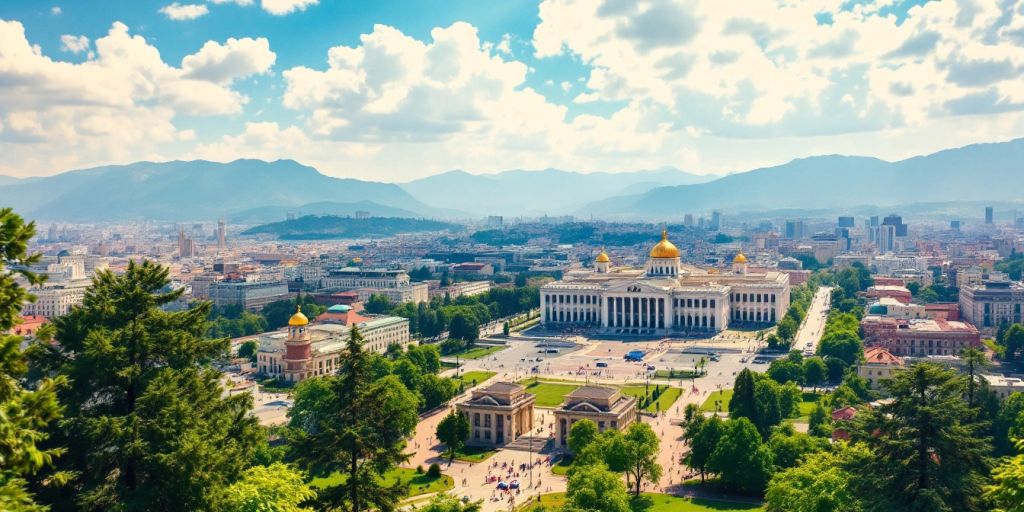North Macedonia is currently navigating a complex political landscape marked by tensions surrounding the Prespa Agreement, media freedom, and human trafficking issues. Prime Minister Hristijan Mickoski has faced criticism for his stance on the country’s name and identity, while the European Commission has raised concerns about media laws and human rights violations.
Key Takeaways
- Prime Minister Mickoski insists on using "Macedonia" instead of "North Macedonia."
- The Prespa Agreement remains a contentious issue in North Macedonia’s politics.
- The European Commission calls for reforms in media laws to align with EU standards.
- Human trafficking cases have decreased, but challenges remain.
Political Tensions Over The Prespa Agreement
The Prespa Agreement, signed in 2018, aimed to resolve the long-standing name dispute between Greece and North Macedonia. However, Prime Minister Mickoski’s insistence on referring to the country as "Macedonia" has reignited tensions. During a recent parliamentary debate, he argued that the agreement does not prohibit the use of these terms, asserting the right of North Macedonians to identify as such.
Mickoski’s comments have drawn sharp criticism from opposition leaders, particularly Dimitar Apasiev, who accused him of inconsistency regarding the agreement. Greek Prime Minister Kyriakos Mitsotakis has also warned that violations of the Prespa Agreement could jeopardize North Macedonia’s EU accession prospects.
Media Freedom Concerns
The European Commission’s latest report highlights significant shortcomings in North Macedonia’s media laws. It states that the legal framework is not fully compatible with EU standards, particularly regarding freedom of expression. Key points from the report include:
- Limited progress in media freedom and expression.
- Government advertising in commercial media raises concerns about political influence.
- The Assembly has failed to appoint new members to key media regulatory bodies.
The report emphasizes the need for North Macedonia to harmonize its media laws with EU legislation, ensuring transparency in media ownership and addressing threats against journalists.
Human Trafficking Issues
Despite a global rise in human trafficking, North Macedonia has reported a decrease in registered cases. However, the country still faces challenges, particularly concerning vulnerable populations such as minors from the Roma community. Key insights include:
- The Internet and social media are significant risks for potential trafficking victims.
- Organizations advocate for improved identification and support for victims.
While the decline in trafficking cases is a positive development, experts stress the importance of strengthening protective measures and resources to combat this ongoing issue.
Conclusion
North Macedonia’s political landscape is characterized by ongoing debates over national identity, media freedom, and human rights. As the government navigates these challenges, the implications for its EU aspirations and domestic stability remain significant. The situation calls for careful attention from both national leaders and international observers to ensure progress in these critical areas.
Sources
- North Macedonia PM denies shift in stance on Prespa Agreement amid opposition accusations | eKathimerini.com, eKathimerini.com.
- North Macedonia PM Calls Country "Macedonia", tovima.com.
- Joseph: North Macedonia did everything that can be asked of a state – Telegraph – Telegraph, Telegrafi.
- EC: North Macedonia must harmonize the laws on media freedom with the EU – Telegrafi – Telegrafi, Telegrafi.
- Human trafficking has decreased in Macedonia – Telegraph – Telegraph, Telegrafi.






